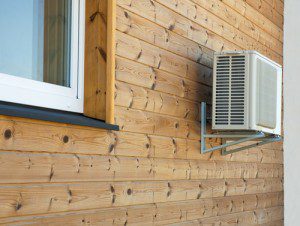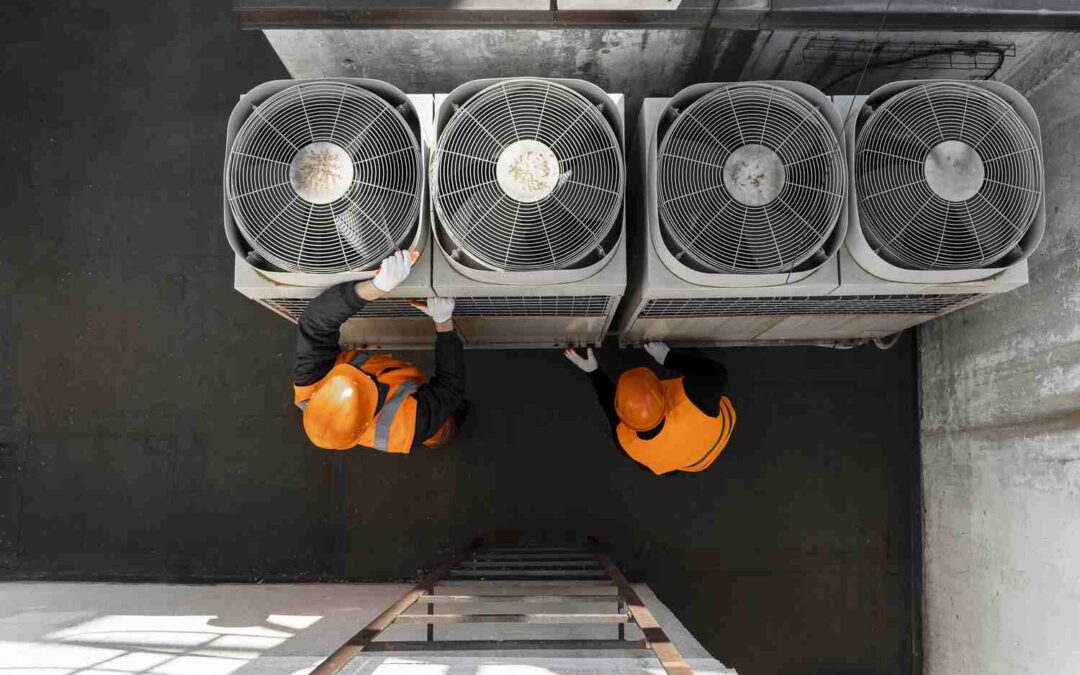Air conditioner condenser tips are very important with spring right around the corner and the mercury rising on the thermometer. Therefore getting your home air conditioner in tip-top shape is understandably a big priority.
It’s really important that all of your home AC’s filters, coils and ducts are regularly cleaned since heating and cooling expenses actually comprise about half of your home’s overall energy expenses, according to Department of Energy findings.
Only when every part of your home AC is functioning properly and without resistance can you eke the most out of your AC, and significantly decrease your monthly utility bills at the same time.

Understanding Your Home’s Air Conditioner Condenser
Before taking a look at your air conditioner’s major components – namely, the condenser coil, evaporator coil, fan, air filter and blower – what exactly does an air conditioner do to make your home a more hospitable place to rest your feet after work?
Cooling, Dehumidifying and Regulating
To simplify the issue somewhat, air conditioners do three major things to make your home more comfortable – an air conditioner blows cool out out into your home, lowers the humidity levels in your home to make breathing more comfortable, and regulates your indoor air temperature with the help of a thermostat.
In addition to those three functions, air conditioners also remove harmful particulates from the air circulating throughout your home with the help of an onboard air filter.
By the way, you should have your filter cleaned – either DIY or with the help of an HVAC professional – about once per month during peak (a.k.a., summer) use. If you don’t clean your filter regularly it can make everything, including the blower, work harder than it needs to and result in a higher-than-expected utility bill as well.
Bringing It All Together
So, how does your air conditioner’s filters, coils and condenser all come together to cool down your home? Air conditioners actually work in a similar way to refrigerators since both rely on the chemical fact that when you lower the pressure of a gas, that gas actually expands and the result in cooler air.
Going back to chemistry 101, these changes in the gas’ state are known are phase changes. Some of these phase changes – e.g., evaporation and condensation – translate directly into HVAC terminology when you start talking about evaporator and condenser coils on your home’s AC.
Compressor
The compressor is at the heart of your AC’s ability to cool down your home since it’s the compressor that moves the refrigerant in a closed-loop system back and forth from the evaporator coils and condenser.
Condenser Coil
So this is where it gets interesting: the condenser coil on your AC (or refrigerator) is actually integral to the heat transfer process that “condenses” the incoming vaporous refrigerant into liquid form.
The extra heat from this process is innocuously sent outside. The fan on your home’s AC is actually the piece responsible for moving the air around the condenser coil and dispersing the heat so that you and your family can enjoy cool comfort.
Blower
The blower on your home’s air conditioning unit actually pushes air right over the cool evaporator coils while another blower – known as the exterior exhaust fan – pushes the hotter air out of the vicinity of the condenser coils.
Home Air Conditioner Maintenance Tips
Especially if you have an outside HVAC unit, make sure that your coils don’t get bogged down with debris, pollen, dust or other curveballs that nature can throw homeowners.
Get in touch with us your HVAC professional if you need help removing allergens and harmful particulates from your filters. Your family’s health is absolutely worth it.
Frequently Asked Questions: Air Conditioner Condenser Tips
1. What is an air conditioner condenser and how does it work?
An air conditioner condenser is a crucial component that releases the heat absorbed from your home to the outside. It works by transforming refrigerant from a gas to a liquid state through condensation, expelling the absorbed heat with the help of a fan. This process allows your AC to blow cool air indoors.
2. Why is regular maintenance of the air conditioner condenser important?
Regular maintenance of the air conditioner condense is vital because it ensures the efficiency and longevity of your AC system. Cleaning the condenser coils, checking the refrigerant level, and ensuring the fan operates correctly help prevent breakdowns and maintain optimal performance, ultimately saving on energy costs and avoiding expensive repairs.
3. How often should air conditioner condenser coils be cleaned?
Air conditioner condenser coils should be cleaned at least once a year, preferably before the cooling season starts. If you live in a dusty area or have trees and plants nearby, you might need to clean them more frequently. Regular cleaning prevents debris buildup that can impede airflow and reduce efficiency.
4. What are common signs that the air conditioner condenser needs maintenance?
Common signs that your air conditioner condenser needs maintenance include reduced cooling efficiency, unusual noises, higher energy bills, and frequent cycling on and off. Additionally, visible dirt, debris on the coils, or poor airflow indicate it’s time to service your condenser.
5. Can I clean my air conditioner condenser myself, or should I hire a professional?
You can clean your air conditioner condenser yourself by turning off the power, removing debris, and gently washing the coils with a garden hose. However, for a thorough cleaning and to avoid damaging the unit, hiring a professional HVAC technician is recommended. They have the tools and expertise to ensure a comprehensive job.
6. How does a dirty condenser coil affect the performance of my air conditioner?
A dirty condenser coil restricts airflow, forcing your air conditioner to work harder to cool your home. This increased workload can lead to higher energy bills, reduced cooling efficiency, and a shorter lifespan for your AC unit. Regular cleaning ensures optimal performance and energy savings.
7. What is the role of the fan in the air conditioner condenser?
The fan in the air conditioner condenser plays a critical role in expelling heat from the refrigerant by blowing air over the condenser coils. This process facilitates the heat transfer necessary for cooling. A malfunctioning fan can lead to poor cooling performance and potential system damage.
8. How can I tell if my air conditioner condenser is failing?
Signs that your air conditioner condenser might be failing include unusual noises like grinding or squealing, a noticeable decrease in cooling performance, frequent system cycling, and unexpected increases in your energy bills. If you notice these symptoms, it’s crucial to contact an HVAC professional for an inspection.
9. What are the benefits of professional air conditioner condenser maintenance?
Professional air conditioner condenser maintenance ensures that all components are thoroughly inspected, cleaned, and tuned. Benefits include improved energy efficiency, longer system lifespan, reduced risk of breakdowns, and better indoor air quality. Professionals also spot potential issues before they become major problems.
10. How does the air conditioner condenser fit into the overall HVAC system?
The air conditioner condenser is part of the outdoor unit and works in tandem with the indoor evaporator coil. It expels heat absorbed from indoors, allowing the evaporator coil to cool the indoor air. This heat exchange process is essential for the cooling cycle and overall HVAC efficiency.
Conclusion
Understanding and maintaining your air conditioner condenser is essential for optimal performance and energy efficiency. Regular cleaning, professional check-ups, and timely repairs can ensure your AC runs smoothly, keeping your home comfortable and your energy bills low. For more information, consult an HVAC expert today.



